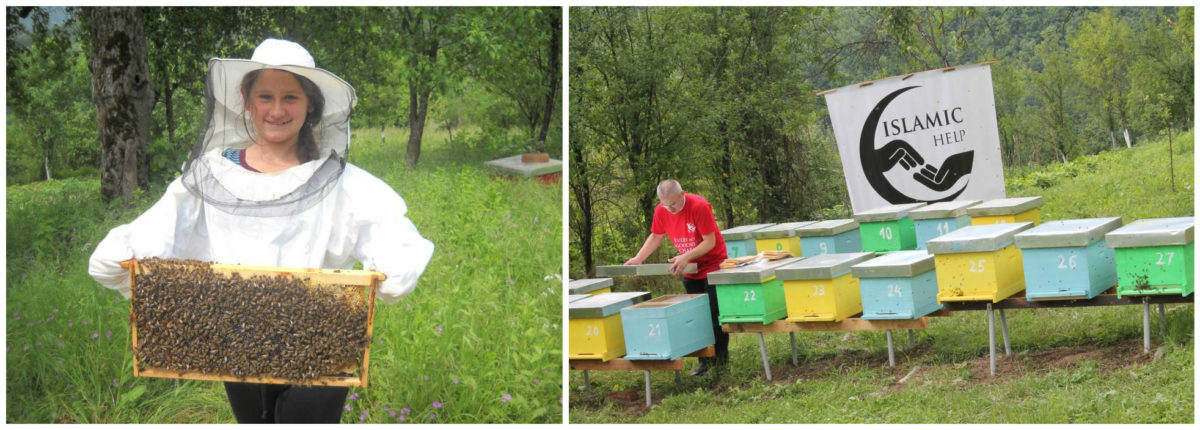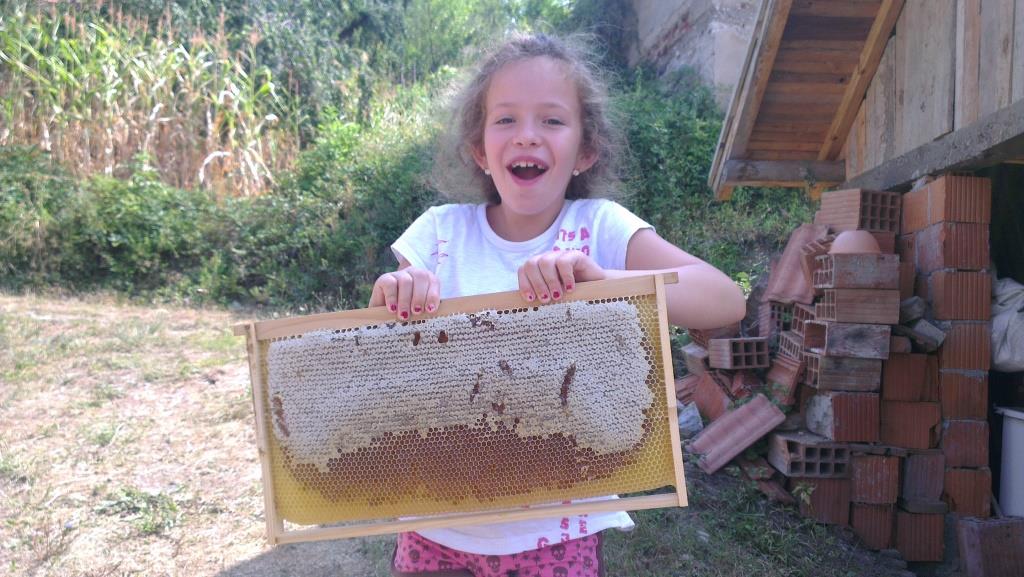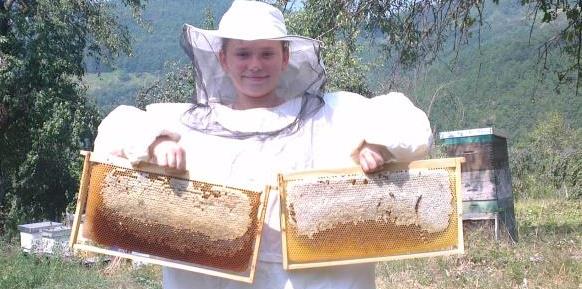Keeping bees for Bosnia livelihoods
In Bosnia, Muslim communities especially are still struggling for socio-economic stability following the Balkans civil war. Despite the establishment of an independent state, Bosnia Herzegovina, and the end of the conflict 15 years ago, many Muslims feel disenfranchised.
Through our partners, Islamic Help has distributed food parcels and meat to hundreds of families at Ramadan and Qurbani. We have also established livelihood programmes to help families make the best use of natural resources and improve their economic conditions.
These include a raspberry growing venture for the benefit, initially, of 5 families in Begov Han in the Zepce municipality. The district is one of the first to have launched a programme of growing raspberries in its areas, so that today on the hilly and mountainous regions of this municipality there are about 100 hectares of this crop.
The ultimate goal of the livelihood project is to raise 5 acres of Willamette raspberries which will generate a profit of approx. £13,000 in a three-year period, allow for extending the plantations and increase local job opportunities and entrepreneurship, especially for young people.
Another livelihood venture is the cultivation of honey which has started with the rebuilding and expansion of an apiary for a family-of-six, headed by Faruk Ibišević. The family rebuilt their home in Srebrenica and Faruk’s parents started an apiary.

His father passed away in 2012 and his mother, who has some disabilities, came to live with the family. With his father no longer present to look after the apiary, it was reduced to two hives but the family has now been able to build it up to 57 colonies, with each producing 30kg of honey a year.
With an investment of just over £3,600, the family is expecting an annual profit of approx. £10,000 from the apiary, which is on the way to self-sustainability and generating enough income for two full-time jobs.

Islamic Help’s livelihood programmes also include, among others, bee-keeping and small shops in Tanzania and mobile shops for acid attack survivors and families affected by natural disasters in Pakistan.




